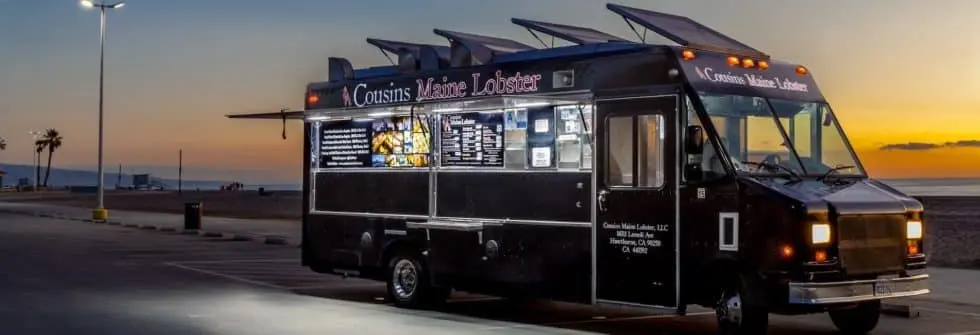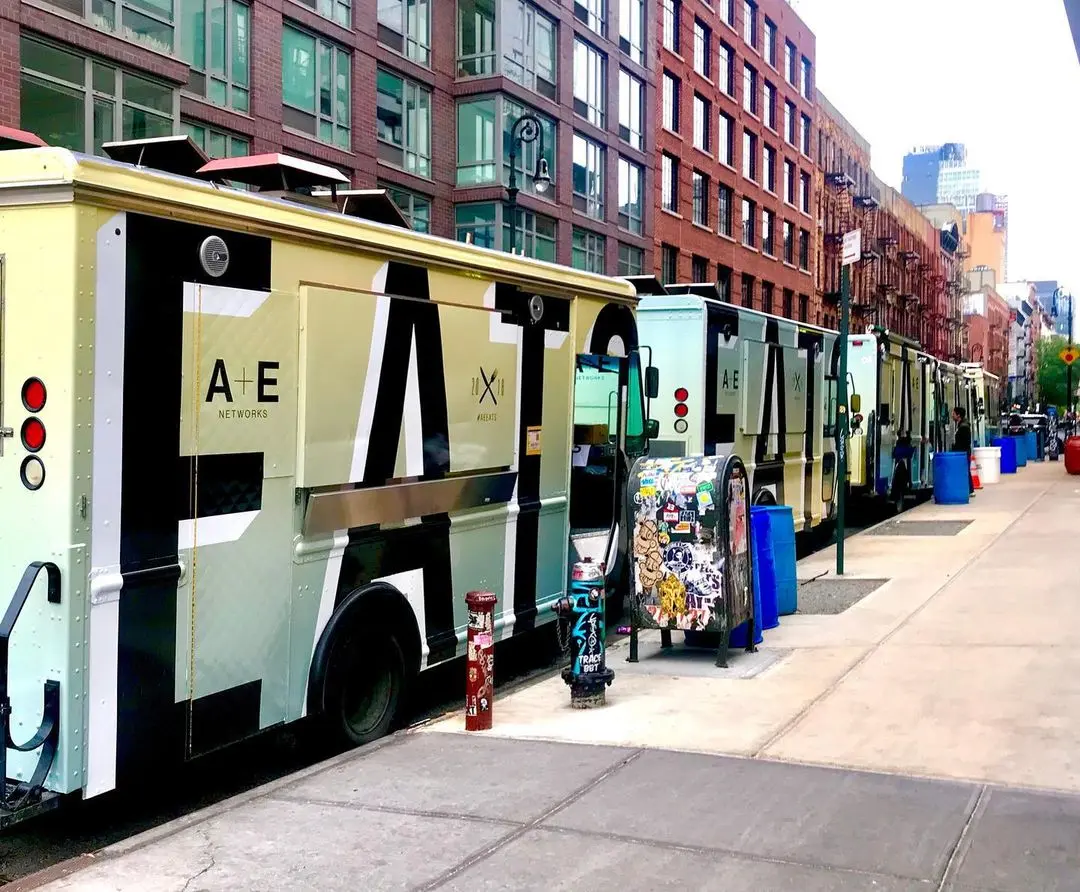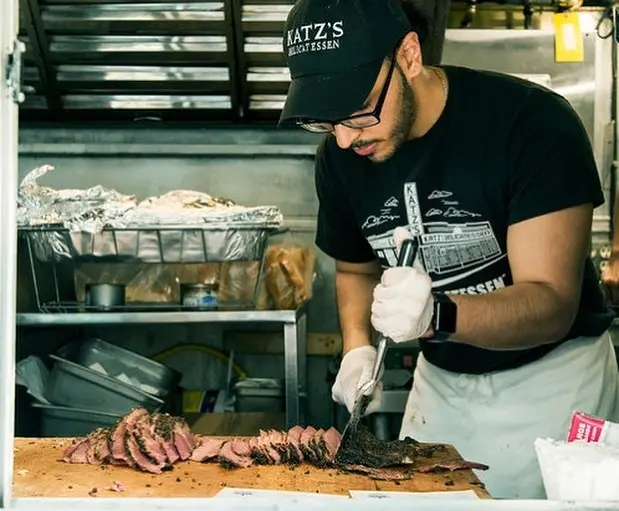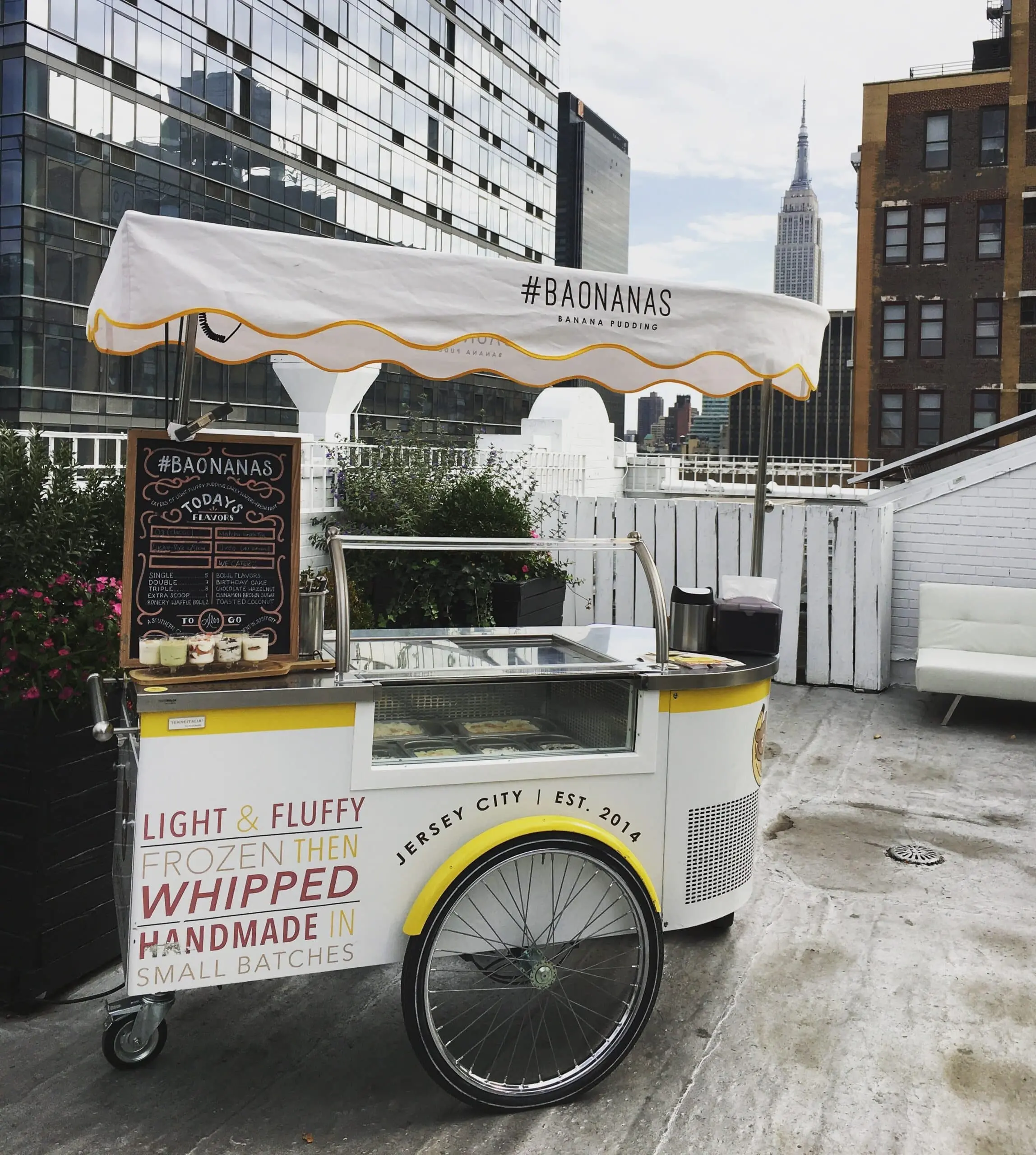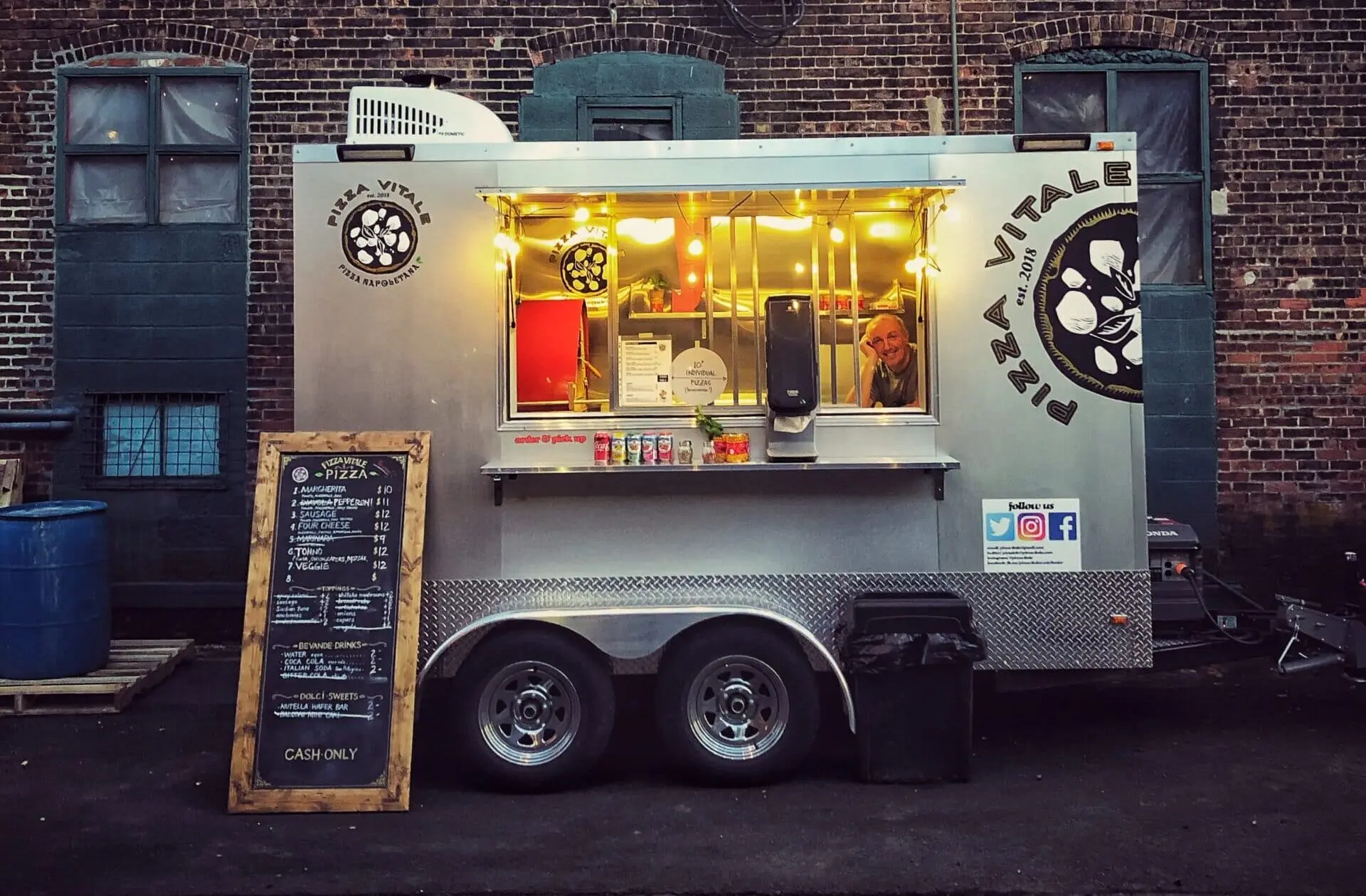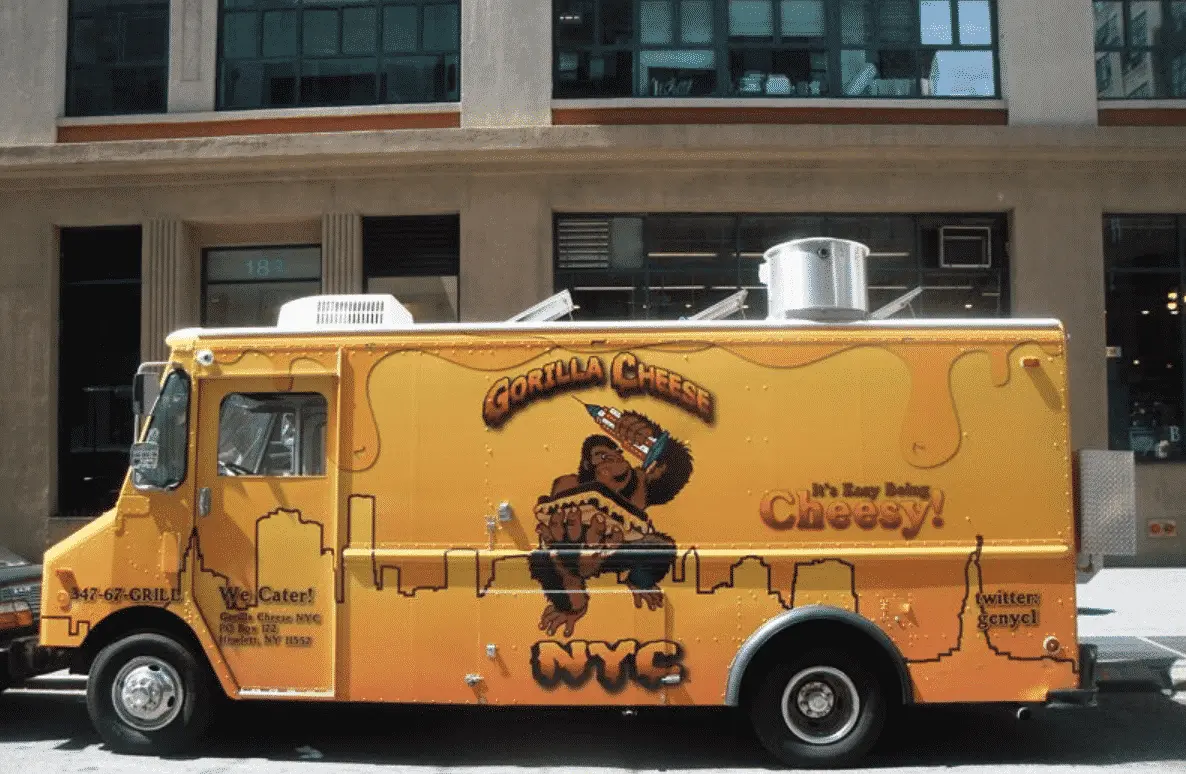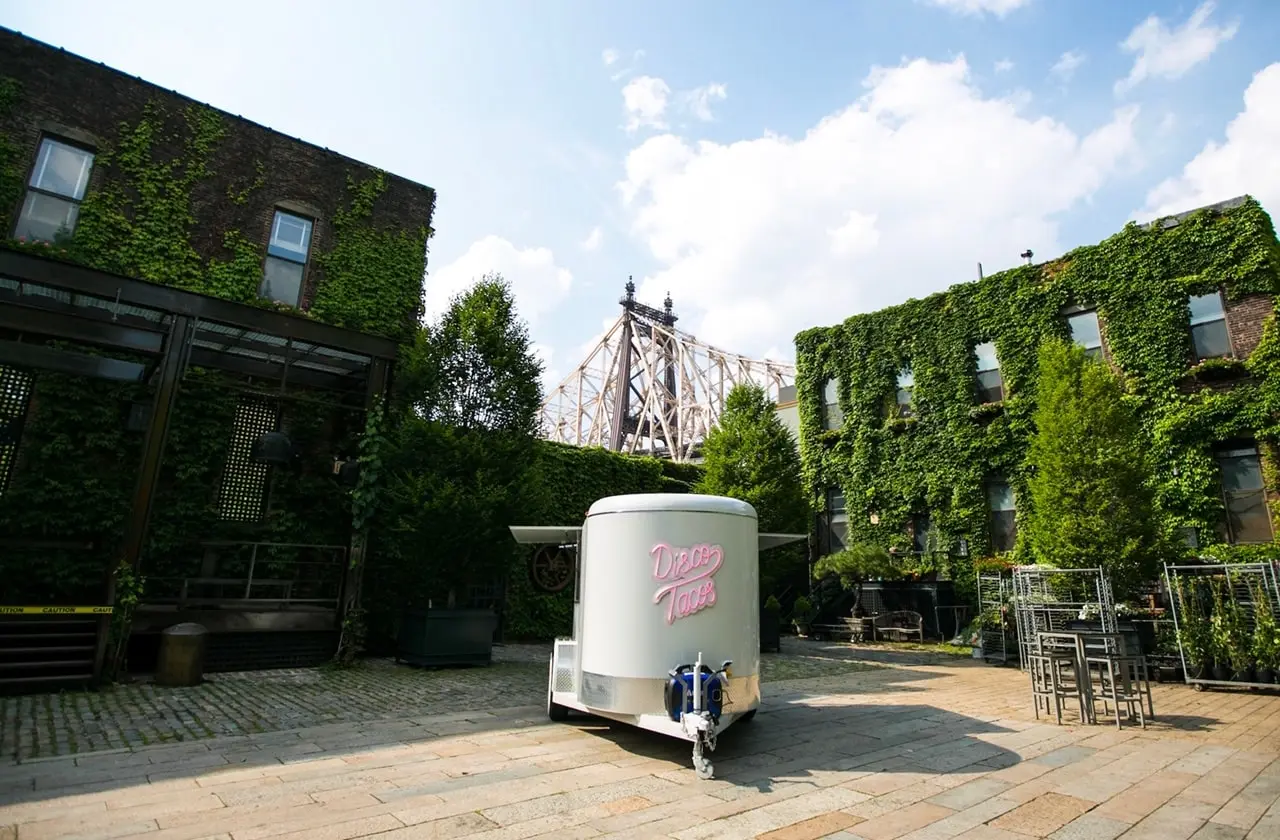Food Trucks vs. Carts vs. Trailers: A Guide
Food trucks, food carts, food trailers— each of these mobile catering platforms have their advantages. Food trucks are commercial-grade kitchens on wheels, carts are budget-friendly, and trailers are just right for large events. But what’s the difference? And which one is best for your needs? Let’s take a look at the pros and cons, so you can find the perfect partner to cater your event!
What’s the Difference?
Before we dive in, understanding what food trucks, carts, and trailers offer will help you decided which mobile catering unit is the best fit for your event:
Food Trucks
Food trucks are the most common and popular mobile food service option. Just like it sounds, food trucks are vehicles that host a full-service kitchen, like a brick-and-mortar restaurant. Food trucks are most commonly between 16 and 18 feet long. Also, because of their size— and the fact that they’re a combination kitchen/truck— they’re the easiest to transport, especially when your event takes place at multiple locations.
When A&E recently hosted its annual luncheon for agency partners, they partnered with Katz’s Delicatessen for a special show of appreciation. With help from nine food trucks, A&E delivered custom-packaged sandwiches throughout nine different locations in NYC. This creative corporate catering was able to touch multiple points simultaneously, and A&E launched an interactive and memorable brand experience.
title
Food Carts
If you’re planning an event and looking for the least expensive option, check out what food carts have to offer. While food carts— unless retrofitted— lack a full-service kitchen, they provide a more straightforward menu prepared off-site. This is ideal if you’re hosting a smaller event in one location or its duration is short. Food carts are also great if you’re serving snacks instead of catered meals. So think ice cream, mini-donuts, cookies, and popcorn.
Food Trailers
In between food trucks and food carts are food trailers. While they’re not mobile and need a separate vehicle to tow it, their size is comparable to a food truck— and can even be larger. If you’re hosting a large-scale event, booking a food trailer might be your best option. But keep in mind that the bulkiness of food trailers means they’re not easily maneuverable. If the size of your outdoor or indoor venue is limited, food trailers may not be suitable for you. But if space is no issue— and especially if your event is held at a state fair, trade show, festival, sporting event, or concert, food trailers can serve large crowds with ease.
Pros of Food Trucks
- Set up is easy - Because they’re self-sufficient, food trucks can transport, park, cook, and serve food with minimal set-up.
- They’re brand-centric - Food trucks are like mobile billboards and can be customized to showcase your brand’s logo and/or aesthetics, which is excellent for experiential branded promotions.
- They save time - When booking mobile catering services, it’s essential to allocate enough time for before and after your event— and that costs more money. However, with food trucks, they can move between different locations with ease and save time for setting up and cleaning up.
Cons of Food Trucks
Pros of Food Carts
- They’re cost-effective - Whether you’re hosting an intimate party or on a budget, food carts deliver high-quality foods at a reasonable price.
- They’re creative and unique - Colorado-based Bhakti Chai wanted to maximize the reach of its premium chai teas to a nationwide audience. Using a branded tuk-tuk, Bhakti Chai launched a 10-month cross-country mobile sampling tour, visiting 20 U.S. cities.
- They’re versatile - Good things do come in small packages. Unlike food trucks or food trailers, food carts are smaller in stature, which means they’re compact enough for outdoor and indoor settings.
Cons of Food Carts
Pros of Food Trailers
- Reasonably priced - Food trailers are the happy medium in terms of price between a food truck and a food cart.
- They offer more space - In terms of function, food trailers are on par with food trucks. But they provide more extended units, between 35 and 53 feet in length. That means they can easily feed large crowds.
Cons of Food Trailers
Key Takeaways Between Food Trucks, Carts, and Trailers
There are advantages and disadvantages to renting a food truck, food cart, or food trailer. No event, large or small, is ever the same. It takes having a clear understanding of your event’s logistics to decide which one suits your needs best. The good news is that whichever platform you choose, you’ll be hosting an out-of-the-box catered event featuring delicious food from premium vendors that will handle all the moving parts! So check them out and book one today!

